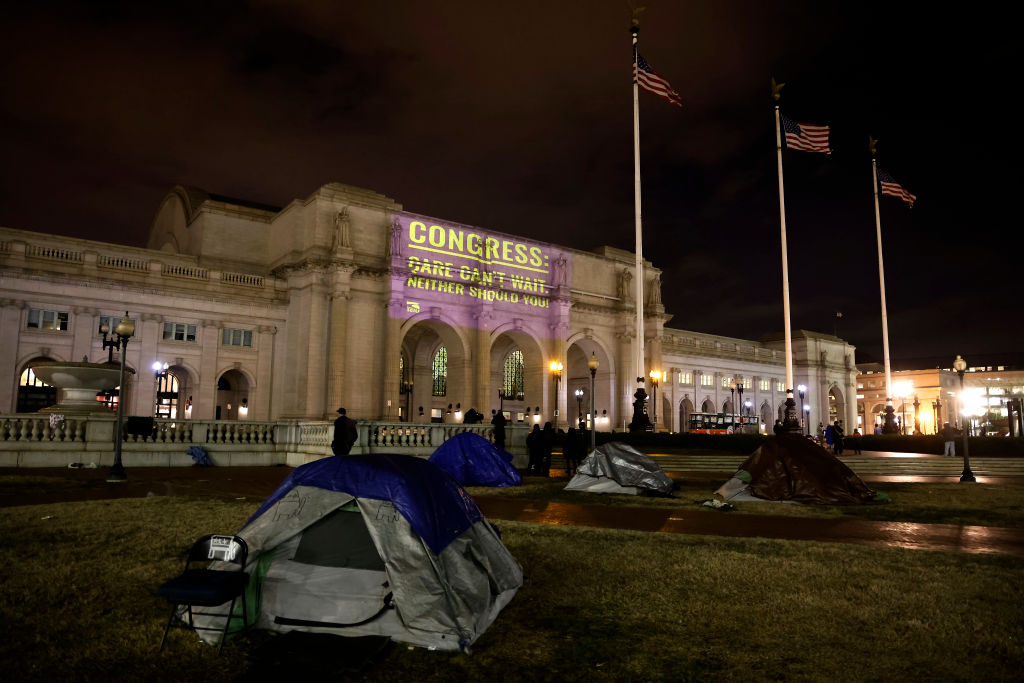As I write this, a federal judge is considering whether Amtrak should be allowed to seize Washington DC’s Union Station, which is something like a combined urban mall and rail hub. In court, Amtrak has argued that it’s entitled to take Union Station and claims its expertise in transportation management makes it better equipped to operate the station.
The US Constitution protects the rights of property owners in all sorts of ways, but it doesn’t protect property owners against eminent domain — the phrase for having your property taken for public use in exchange for fair compensation.
In fairness, railroads generally need improvement: up to a point, it’s appropriate to take property for railroads when the owners are justly compensated and the results genuinely advance the public welfare.
To see why, consider the alternative: a universe with no eminent domain and invulnerable property rights. That hypothetical regime will be filled with holdout problems: when a railroad is needed, landowners will demand extraordinarily high payments for their land, or perhaps they will never sell at any price.
But the Amtrak case presents a notable example of a holdout problem, even under a system that permits eminent domain. It is the worst of both worlds. Amtrak says it’s offering a fair price of $250 million for Union Station, but Rexmark — the company that is Union Station’s current owner — says Union Station is worth nearly three times that much. If the judge approves the exercise of eminent domain, he will have to figure out a fair price for the property.
That’s a hard job. You and I can debate how much an apple or a candy bar should cost, but there is no real answer to the question except to say we have to look at the real world of market exchanges and see how much people are willing to pay for such things. Sadly, we can’t do that for Union Station; it is one of a kind. I am sure that the lawyers will ask economic consultants to produce a briefcase full of white papers that will theorize about Union Station’s value, but we all know that such reports rely on a heck of a lot of guesswork.
Courts are not well-equipped to make good judgments in such cases. Federal judge Amit P. Mehta will have to look at such matters as legislative goals expressed in federal statute, economic analysis of how well Union Station is currently using the property and hypothetical predictions of how well Amtrak might be able to manage its new property holding. It isn’t clear how much weight the court will give — or should give — to the fact that Amtrak has never been able to make a profit. Ultimately, these matters are large policy decisions that are better left to legislatures.
What we know is that in 1981, Congress arranged for the current property owner to hold a longterm lease on Union Station. We know that Congress ordered the Department of Transportation to create a rail hub driven by “maximum reliance on the private sector and minimum requirement for federal assistance.”
But times change. Now that Amtrak has received a special subsidy of $66 billion in the recent infrastructure bill, sending its lawyers into court with a $250 million offer to take over Union Station must look to it like a penny-ante bet in the world’s biggest poker game.
I don’t think it was good government for Members of Congress to hand Amtrak $66 billion, lie back and see what happens. The head of Amtrak, Steven Gardner, explained in court earlier this year that there was a “mismatch” between the railroad and Union Station, which he called “a private developer looking to maximize retail and revenue.” Amtrak’s goal, he added, was “to take away that interference and distraction between us and instead have control over the leased area.” Of course, Amtrak’s expertise in railroad management may be unparalleled, but I think there is less reason for confidence in Amtrak’s expertise in retail management.
Really, this is no way to run a railroad.
Dan Greenberg is general counsel for the Competitive Enterprise Institute.

























Leave a Reply